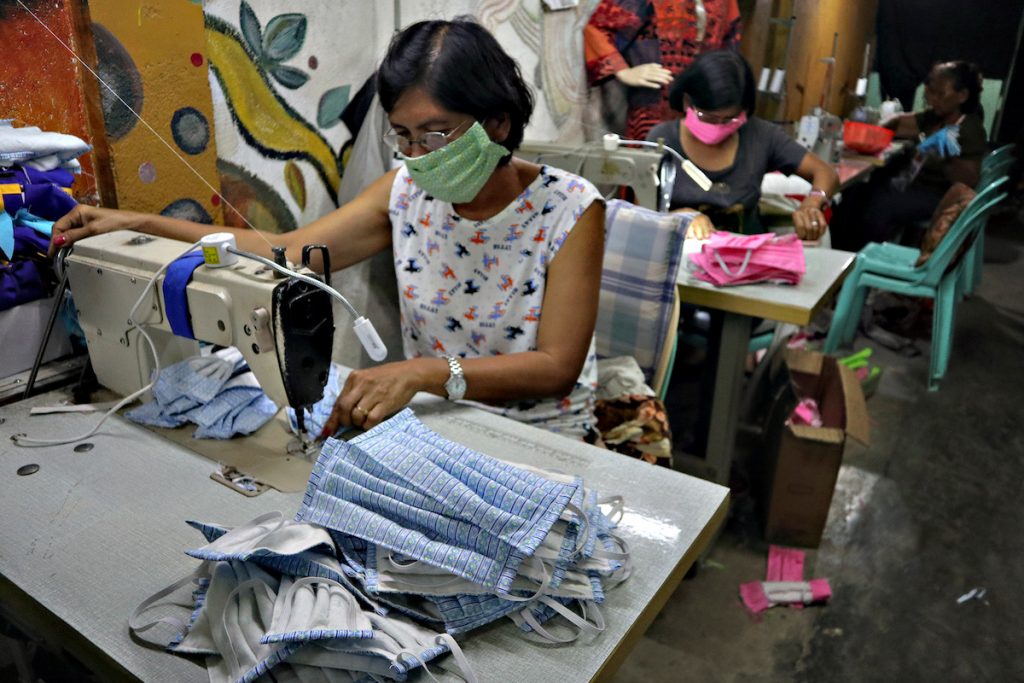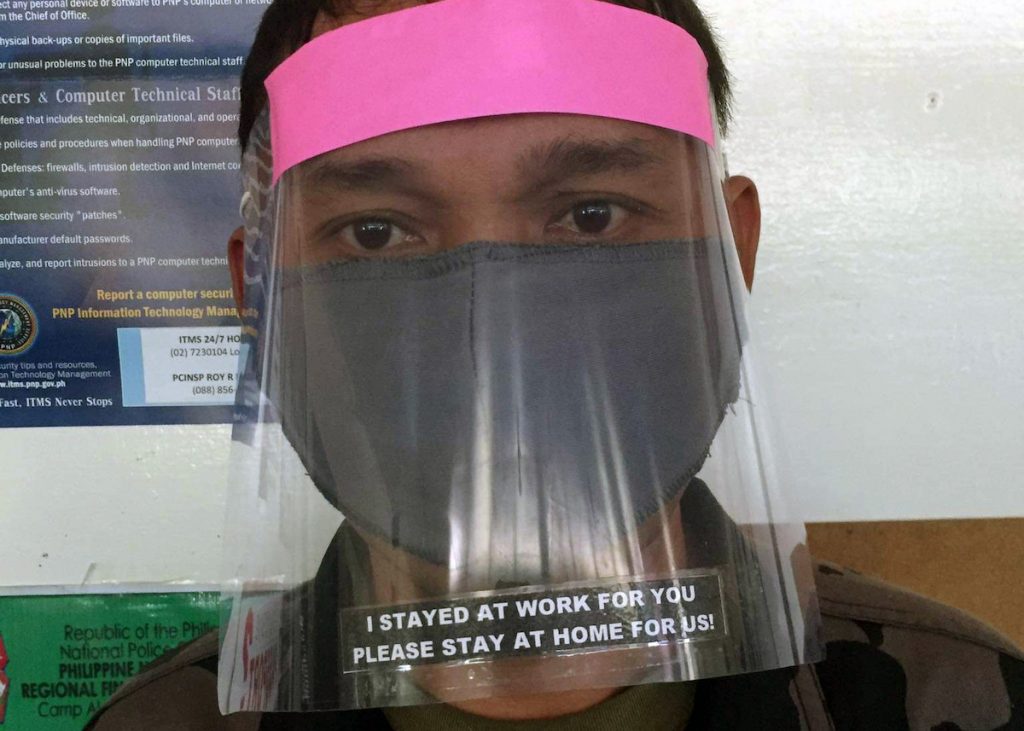Residents in a village in the southern Philippines have been busy packing goods for poor communities that are most affected by the quarantine to prevent the spread of the new coronavirus.
“With the situation unfolding, several people, especially daily wage earners, will be most affected,” said Menchie Rosario, village head of Libertad village in the city of Butuan.
She has been leading a group of villagers in packing goods for distribution to people who have less and those who cannot afford to meet their basic daily needs.
Rosario said they have already prepared about a thousand packs that contain two kilograms of rice, two packs of instant noodles, two cans of sardines, and a quarter kilogram of sugar.
The money for the supplies came from the village’s calamity fund, which had not been spent over the past two years.
The village of Libertad has about 21,000 residents.
In the nearby village of Diego Silang, village leaders are ready to distribute their relief goods, which also include two kilograms of rice, two packs of noodles, a can of sardines, six vitamin-c tablets, and a face mask.
Several other villages in the city have also started initiatives to help poor communities most affected by the pandemic.

Face masks for frontliners
A group of young people, meanwhile, has initiated a project to sew face masks.
Cynth Zhepanee Nietes, head of the city’s youth council, said the initiative is funded by the young people themselves.
They plan to distribute the face masks to village officials who monitor the situation, health workers, and those manning checkpoints.
“Right now, while we don’t yet have the mask, we are distributing snacks to all the checkpoints throughout the city,” said Nietes.
A local performing arts group, Kulture Revival Events Core, has also stepped in. They are using sewing machines normally employed to make costumes to stitch together new masks.
“Since [March 16], we have been sewing face masks round the clock,” said Sai Collado, executive director of the group.
“We hope to target 5,000 masks by next week,” she said, adding that they will donate 1,000 pieces to frontline workers.
To quell fears on the spread of the virus, Mayor Ronnie Vicente Lagnada of Butuan placed the city under community quarantine on March 19.
The order requires everyone to wear face masks or improvised face masks at all times, whenever they leave their place of residence.
Home quarantine has also become mandatory, and people are only allowed to leave their residences to purchase essential goods.
Several business establishments in the city have already closed shops due to the fear of contagion.
Supermarkets, pharmacies, banks, convenience stores, and some restaurants, however, remain open.
Face masks from old police uniforms
With the shortage of face masks in many places, members of the police’s Mobile Force Company, in the city of Iligan, have opted to make them out of old police uniforms.
Lt. Col. Roger Kent Andoy said his personnel thought the masks could be used by those manning checkpoints.
“We have a lot of old uniforms in the office, that’s why we came up with the idea,” said the head of the Mobile Force Company.
“The scarcity of the things we badly need made our talent come out,” said Andoy.

Maj. Abogado Mautin, chief of the city Police Station 4, said his office also got the idea to address the “social distancing” protocol imposed by the government.
“It is impossible for us to observe social distancing of at least one and a half to two meters at the checkpoint,” he said.
“We have to verify the identity of persons, ask them of their destination, and we have to get closer,” said Mautin.
COVID-19 kits for the poor
In the capital Manila, the social action arm of the archdiocese announced that it will provide COVID-19 kits to poor families to help protect vulnerable populations from the disease.
The kit includes alcohol disinfectant, face masks, antibacterial liquid soap, vitamin c, reusable gloves, liquid bleach, and a sanitary cloth.
Aside from the kit, the church agency will also provide food bags to poor families affected by the “enhanced community quarantine.”
In a statement, Caritas Manila said it is already repacking relief goods and organizing the social service and development ministry teams in parishes.
“We have started sending the Caritas Ligtas COVID-19 kits and Caritas Manna food bags to partner parishes and communities today,” it said.
The church group appealed to the public to support the campaign by donating.
“Let us continue sharing our resources to the most vulnerable in the COVID-19 pandemic — the poor and the elderly,” said Caritas Manila.
“No one should be left behind as we fight COVID-19 with charity,” it added.







